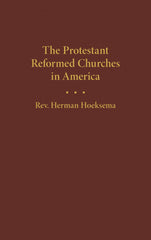Your cart is empty now.
Book Review - Fruit of the Spirit
The following review was written by Ava Langerak on the book The Fruit of the Spirit of Jesus Christ by Richard J. Smit (Jenison, MI: Reformed Free Publishing, 2012). This review was originally published in the August 2023 issue of The Grandville Gleaner.Book Review - I Believe: Sermons on the Apostles' Creed
Especially ministers will profit from this prophet. They will profit from the setting forth, in I Believe, of Reformed basics, distinctives, and definitions—the teachings and their implications. They will profit from this master sermon-craftsman whose preaching was of biblical texts in light of themselves and their contexts and in light also of the one faith of the complete corpus of God’s revelation; here, as elsewhere in his writings and sermons, is exegetical-doctrine preaching and teaching at its best...
Book Review - Life in the Covenant: In Family, Church, and World
The following review was written by seminarian Arend Haveman on Life in the covenant: in Family, Church, and World by Wilbur Bruinsma (Jenison, MI: Reformed Free Publishing, 2023). Life in the Covenant is the believer's guide to a proper worldview as member of God’s covenant. “God’s covenant is...Book Review - Say Among the Heathen the Lord Reigns
The following review was written by seminarian Matt Koerner on Say Among the Heathen the Lord Reigns:...
His Truth is Marching On
Unfolding Covenant History: An Exposition of the Old Testament, Volume 6: From Samuel to Solomon by...
















